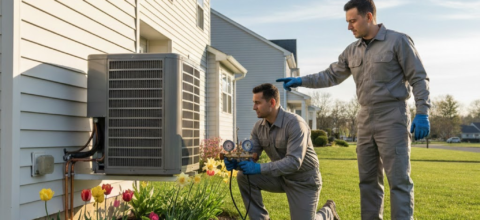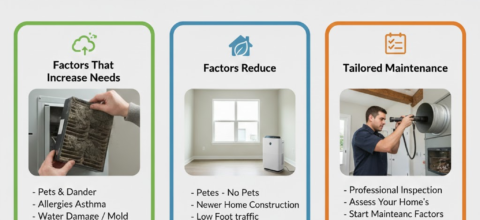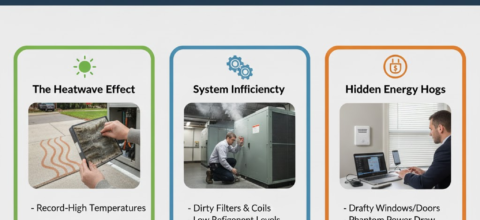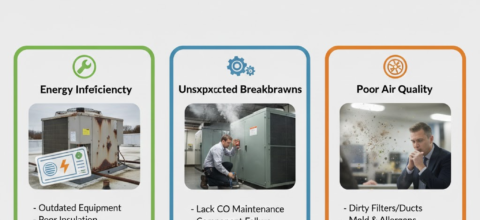Why is air quality inside important?
What to do if you are trying to lead a healthy lifestyle, but being at home makes you feel uncomfortable? Perhaps you start to feel dizzy, or even a bit sick, and the quality of your hair and skin is deteriorating? All of these symptoms indicate poor air quality in your home.
This problem is especially relevant for residents of cities, where the air quality outside can be quite low. According to WHO, indoor air pollution can be several times higher than outside air pollution. This is obvious, but still – it is very bad for your health.
Most of the damage is done to the cardiovascular and respiratory systems. But you can correct this situation with your own hands, if not completely, then at least partially. How to deal with low levels of indoor air quality will be discussed in this article.
How to improve air quality in your home?
You can start improving indoor air quality yourself. It’s not as difficult as it sounds. Here are some recommendations that will help you to forget about bad air quality:
- Use environmentally friendly cleaning products. To do this, choose products with a low content of Volatile Organic Compounds (VOC). Usually their presence is indicated somewhere on the packaging. These substances remain in the air after use, can emit a strong and unpleasant odor and adversely affect your health.
- Do wet cleaning more often. Dust is one of the biggest problems in any home and can cause a huge amount of respiratory problems.
- Use a natural detergent. It is enough to mix lemon juice with water and wash windows and some other surfaces with this solution. Lemon has very potent antibacterial properties and effectively removes odors. There are only two restrictions – natural stone and copper surfaces cannot be washed with such a solution.
- Clean the ventilation. Ventilation is often heavily polluted, which negatively affects its performance and the air quality in your home. Additionally, dust and other harmful formations, as well as mold, can accumulate in the ventilation system.
- Ventilate the room more often. If the weather outside allows, it is advisable to ventilate the room at least once a day for several minutes.
- Use a humidifier. If indoor air humidity is too low, it can cause skin and hair problems. You can check the humidity level using a special device. Adding humidity to the air is possible by using special humidifiers, which perform independent humidification once in a while.
- Grow indoor plants. There is a huge list of indoor plants that have a very positive effect on AQI (air quality index) and require minimal maintenance.
By following these simple rules, you can significantly improve indoor air quality at minimal cost. After that, you will notice that your well-being has improved significantly.
How poor air quality can affect your health
According to WHO, between 4% and 8% of premature deaths are due to the presence of dust particles in the air, both indoors and outdoors. Up to 30% of respiratory diseases are associated with ambient air pollution, including indoors. When heating or cooking in poorly ventilated areas, the content of harmful particles in the air increases by 10-20 times.
All this can cause the formation of different forms of cancer and the appearance of chronic diseases, the most dangerous of which is chronic obstructive pulmonary disease, as well as asthma and various allergies. This is most dangerous for children and the elderly. According to WHO statistics, in 2020, the number of deaths from unhealthy indoor air quality was estimated at 3.2 million people. This included 237,000 children under the age of 5 years.
One of the main reasons in this case is the use of harmful types of solid fuels – firewood, crop waste, charcoal and coal, and so on. If this applies to you, it is better to switch to safer fuels. For example, natural gas, or electric furnaces. Otherwise, you greatly increase the chances of developing serious diseases such as coronary heart disease, stroke, chronic obstructive pulmonary disease, respiratory infections and lung cancer.
Testing the air quality in your home
Finding out the level of pollution in your home is not as difficult as it seems. There are several ways:
- Purchase of special equipment and independent tests.
- Purchase of specialized kits with express tests.
- Collection of air samples and their delivery to the laboratory for analysis.
The third way is the easiest and cheapest. On the Internet, you can find a large number of articles with detailed instructions on how to collect indoor air samples for delivery to the laboratory.
After receiving the results, you may come across a large number of names that you may have never heard of. The concentration of elements safe for humans:
- Nitrogen – with a concentration of up to 79%.
- Oxygen – up to 20%.
- Carbon dioxide – up to 0.04%
- Argon, hydrogen, helium, neon, krypton, xenon and radon – up to 0.94%.
Hazardous substances that can cause health problems include:
- Ozone.
- Formaldehyde.
- Phenol.
- Nitrogen dioxide.
- Benzene.
The results obtained usually indicate the concentrations of most of these elements. If you feel nauseated, dizzy, vomit, and have signs of poisoning while inside your home, this means the concentration of some substances on the list is higher than the recommended concentration. You can find a complete list of all possible elements with the maximum allowable content, for example, on the WHO website. Or ask the laboratory to which you took the air for analysis to decipher the records and explain to you what exactly is wrong with the air in your home. They will also be able to name the main reasons for the presence of certain pathogenic elements in the air.
If you do not feel very well, it is better for you to consult a doctor and get tested. And also check the condition of your lungs and respiratory system in general. And to avoid such problems, it is enough to do some indoor air quality monitoring.
If you cannot correct the situation on your own, seek professional help. In every major city there are organizations or companies that can help you in this matter. Their services may seem expensive to you, but huge medical expenses or premature death are still worse.










